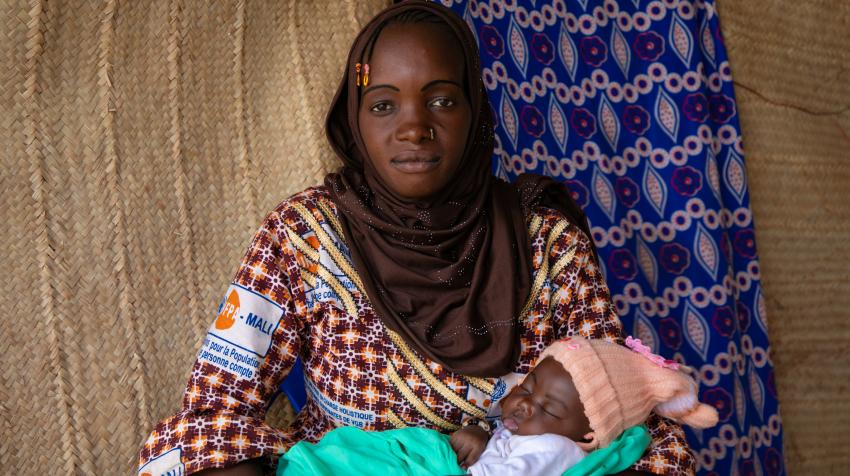August 2013, No. 2 Vol. L, Security
The rapidly changing global environment affects the nature of the work done by consuls and the conditions under which they work. Among the significant challenges that consuls face globally is the emergence of new security risks that threaten peace, security and development. The events of 11 September 2012 in Benghazi, Libya, have brought into sharp focus the new security environment in many countries. Events like these have led the international community and individual states, as well as groups of countries, to evaluate the security risks in diplomatic and consular missions and to propose sweeping new changes. These policy and strategic changes constitute part of the conceptual redefinition of international and national security.
The European Union, for instance, has recently adopted a security strategy to deal with its internal security challenges. This reflects an all-encompassing approach which includes national actions affecting policing, criminal law, immigration, border control, counter-terrorism, national security agencies cooperation, information and intelligence gathering and sharing. What is particularly striking is the long list of crimes which are now considered as endangering national and international security. These include terrorism, serious and organized crime, trafficking in illicit drugs and arms, human trafficking, sexual exploitation of minors and pornography, economic crime, cybercrime, corruption, document fraud and money-laundering. Consuls accept their responsibility to join in the global struggle against these crimes and can render valuable services to their respective sending states.
In light of the attacks that have taken place since the 1998 embassy attacks in East Africa, the United States Government has instituted new security measures to combat the increasing threats to the personal safety and security of its officials overseas and their facilities in high threat locations. These activities have increased since the 2012 terrorist attack on the consulate compound in Benghazi where a United States Ambassador and three other United States officials were killed.
These examples illustrate the diplomatic and consular relations that are now conducted in an environment of increasing security risks to the personnel and property of diplomatic and consular missions throughout the world. These threats are themselves the result of internal and external factors which directly or indirectly affect the state’s capacity to protect its own citizens. In addition, a state’s ability to discharge its responsibilities to provide a secure environment for diplomatic and consular missions might be compromised. At the core of these concerns is the diminishing capacity of many states to guarantee safe passage to diplomatic and consular officers as they carry out their assigned responsibilities.
The 1963 Vienna Convention on Consular Relations refers to the security of the consular premises and consular officers under Articles 31, 59 and 64. Articles 31(3) and 59 provide that the receiving state is under a special duty to take all appropriate steps to protect the consular premises against any intrusion or damage and to prevent any disturbance of the peace of the consular post or impairment of its dignity. Article 64 enjoins upon the receiving state to accord to an honorary consular officer such protection as may be required by reason of his official position.
Until recently, consuls were able to rely on the provisions of the Vienna Convention for their protection. However, the attacks on foreign missions of many countries in different parts of the world have laid bare the vulnerability of consuls to acts of terrorism, organized crime and violent internal strife or civil wars and disturbances. Consideration should be given to strengthening the Vienna Convention to improve the legal framework for their protection.
The 2012 Benghazi terrorist attack has highlighted a serious concern for the security of consular missions and graphically demonstrated the vulnerability of consular premises. Consular missions or their sending states cannot handle this problem on their own. They need the support and help of receiving states to protect their premises and consular officers. While consulates can assess the dimension and extent of security risks, they would not be able to take effective action to prevent terrorist and similar attacks on their missions and consular staff.
Laws in some receiving states prohibit the consular mission from taking all the security precautions which would be advisable. This is an issue that needs to be addressed at the international level. The sending state could also seek to ensure equitable treatment of their Consular Missions and personnel through reciprocity.
The World Federation of Consuls advocates the strengthening of the Vienna Convention on Consular Relations:
- to prevent its disregard by states;
- to improve the international legal framework for the protection of consular missions and consular officers against terrorist and other attacks;
- to allow for equity and non-discrimination in the role of honorary consuls to enable them to serve the sending states to the best of their ability, with dignity and in safety.
The World Federation of Consuls was established in Copenhagen in October 1982 as Fédération Internationale des Corps et Associations Consulaires (FICAC). The Federation was born out of the necessity to bring together Consular Corps and Consular Associations to share experiences and coordinate efforts to enhance the effectiveness and status of the consul. The Federation was incorporated in Belgium by royal decree as a non-profit international organization, with its Permanent Secretariat located in Brussels.
FICAC’s business is conducted through several committees, each operating with clearly defined portfolios and terms of reference. Its Board of Directors meets quarterly to evaluate action by the committees and take decisions on their recommendations, in accordance with mandates and policies agreed to at their annual general meeting.
FICAC activities and noteworthy facts include:
- FICAC International Trade Expos, which promote trade directly between the sending and receiving states at very low cost to embassies and consulates.
- FICAC/United Nations Children’s Fund, a humanitarian outreach programme designed to raise funds to benefit underprivileged children with HIV/AIDS. The slogan for this programme is “Consuls turning caring into action”.
- FICAC Gold Star, created as a mark of the highest honour presented only to distinguished world leaders.
- FICAC Medal of Honour, which gives recognition to consuls who have made excellent contributions in their receiving states.
- FICAC International Cultural Galas, which allow consulates and embassies to present their cultural programmes to the people of the receiving states free of cost.
- A partnership agreement was signed between FICAC and the Prince Albert II of Monaco Foundation on 17 September 2012.
- FICAC has organizations in every region of the world, based on the United Nations regional categorization.
- FICAC’s Centre d’Etudes Diplomatiques et Stratégiques in Paris.
- The FICAC News and Who’s Who publications.
- FICAC Regional Consular Conferences.
- FICAC website (www.ficacworld.org).
FICAC enjoys United Nations recognition as a non-governmental organization with Economic and Social Council consultative status. It has similar recognition at the European Union and is also recognized by the Organization of American States.
FICAC has over 90 country members, associations and affiliated members with several thousand individual consul members. Its membership is a network of highly experienced, well-connected individuals whose determined focus, combined expertise and resources can be used to have a constructive and positive impact around the world.
The practice of mutual respect and adherence to the principles recognized in the Vienna Convention will continue to guide the promotion of consular cooperation in each member country. The Convention recognized that honorary consuls, who had been extensively utilized in the past, constituted an efficient instrument in enhancing international relations. Five decades have passed since the adoption of the Convention; the international political, economic and social environment has changed. Consequently, problems facing consuls have also changed.
For example, one of the most important responsibilities of a consul is to protect the nationals of the state which she/he represents. Article 36 of the Convention provides that the competent authorities shall, without delay, inform a detained national of his right to communicate with consular officials of his state and grants consular officials the right to visit, converse and correspond with a detained national and to arrange for his legal representation. Breaches of this provision have caused litigations in domestic and international courts and lead one to conclude that Article 36 is not enforceable in all member countries and further observe that it is weak and not comprehensive.
Consular operations can no longer be confined to the issuance of travel documents and attention to the welfare of the nationals of the represented countries, as globalization has altered the framework of bilateral and multilateral cooperation. Several countries worldwide are closing their embassies for budgetary reasons and are appointing honorary consuls to serve in countries in which they have business interests.
The role of the honorary consul must be expanded to permit sending countries the flexibility of having a wide range of their trade and other interests represented at that level. This expanded role is particularly important for developing countries and small states which cannot afford global deployment of their foreign service.
FICAC recognizes that the future lies in the development of fair trade worldwide, which is one of the principal functions of the consul. Consuls have a presence in all major centres of commerce and industry and they often reside in local communities, which give them a great advantage for trade promotion.
One of the tools of diplomatic and consular missions is cultural diplomacy, which can assist in building and improving dialogue, understanding and trust between governments and citizens all over the world. This not only boosts domestic and international security but also provides a productive context for sustainable development. Strategies and tactics need to be crafted on a case-by-case basis, taking into account all relevant historical, political and cultural factors. These are matters of which FICAC Cultural Exchange Committee is fully aware. With its representation in every region of the world, FICAC can play an increasingly important role in cultural diplomacy.
In today’s rapidly changing international environment, FICAC remains committed to contributing to international peace, security and development through its global network of members. Their connections within the communities and societies where they function enable them to provide pragmatic support, timely responses and advice.
The UN Chronicle is not an official record. It is privileged to host senior United Nations officials as well as distinguished contributors from outside the United Nations system whose views are not necessarily those of the United Nations. Similarly, the boundaries and names shown, and the designations used, in maps or articles do not necessarily imply endorsement or acceptance by the United Nations.




